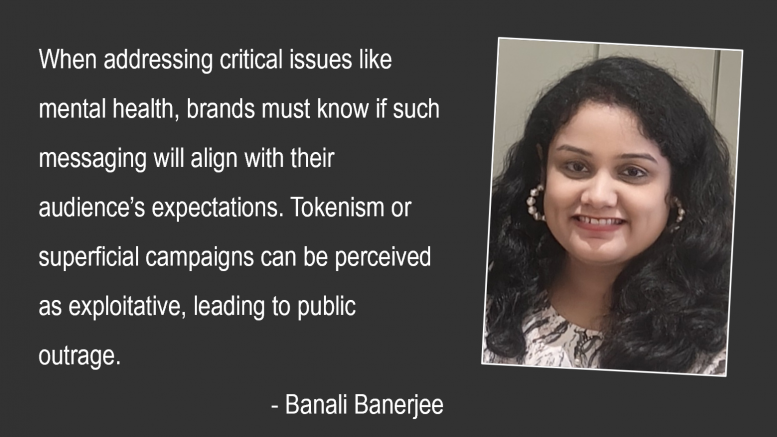Recently, the Yes Madam controversy has sparked widespread debate, not just about the brand’s actions but also the ethics of using sensitive topics for any marketing purposes. The controversy highlights how poorly executed campaigns can backfire, particularly when they touch on deeply personal or societal issues. For PR professionals, it serves as a critical case study in how shock tactics and perceived insincerity can severely damage a brand’s reputation.
The following points will emphasise on the importance of sensitivity, transparency, and proactive communication in public relations.
Key Takeaways for PR Professionals
- Respect Sensitive Topics and Know your Audience: When addressing critical issues like mental health, brands must know if such messaging will align with their audience’s expectations. Tokenism or superficial campaigns can be perceived as exploitative, leading to public outrage. Internal communications play a significant role here. At every step of the approval chain amongst the internal stakeholders, it is important to call out the after-effects of such campaigns. Foreseeing such issues is the soft skill every PR professional should possess.
- Intent Matters: In the era of social media, audiences can often discern whether a campaign is driven by genuine intent or merely for publicity. However, there will always be a section of audience who can get triggered with such sensitive issues. In this case, the campaign was perceived as lacking depth and follow-through. It is important for such campaigns are always backed by substantive actions.
- Transparency is Key: The campaign lacked complete clarity regarding its objectives and execution. Brands must communicate transparently about their initiatives, including how data will be used and what participants can expect. Transparency builds trust and minimises misunderstandings.
- Test Campaigns Before Launch: Conducting focus groups or pilot runs can help identify potential pitfalls in a campaign. Feedback from diverse stakeholders can provide valuable insights into how a message might be received and whether it aligns with the intended purpose.
- Be Prepared for Backlash: Even well-meaning campaigns can sometimes generate criticism. Having a robust crisis communication plan ensures that the brand can respond swiftly and effectively. This includes monitoring social media in real time and issuing thoughtful, empathetic responses when required. Every campaign should have a crisis plan ready which indicates the dos and don’ts as well as the responses to face the backlash.
How to Avoid Similar Crises
- Avoid Shock Tactics: Using sensationalism to grab attention might work in the short term but often leads to long-term damage. Instead, focus on campaigns that genuinely resonate with the audience and add value to the conversation.
- Invest in Engaging with Experts and Stakeholders: Partnering with NGOs, psychologists, or advocacy groups can lend credibility and ensure that campaigns are meaningful and respectful. These collaborations also help avoid tone-deaf messaging.
- Invest in Authentic Storytelling: Authenticity is the cornerstone of successful campaigns. Sharing real stories or case studies can create a genuine connection with the audience and reflect the brand’s commitment to the cause.
- Prioritise Ethics Over Publicity: Ethical considerations should always take precedence over marketing goals. A well-intentioned campaign that aligns with the brand’s values will always have more sustainable impact than a gimmick.
- Learn from Past Mistakes: Every controversy offers lessons. Brands must use such incidents as opportunities to improve their strategies, policies, and communication practices. Building institutional knowledge around crisis management can help prevent repeat mistakes.
The views and opinions published here belong to the author and do not necessarily reflect the views and opinions of the publisher.



Be the first to comment on "Any Publicity is good Publicity? Well, certainly #NOMadam for PR!"